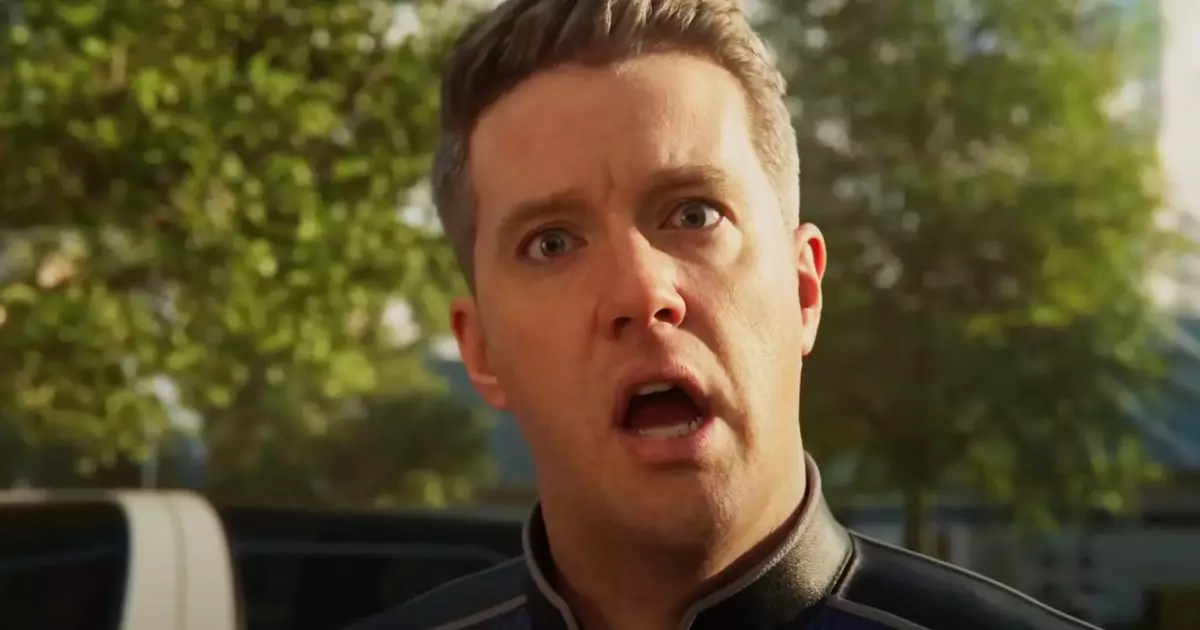Helldivers 2 pushes its players into a brutal battlefield that is as much a reflection of societal chaos as it is a game. The latest in-game directives reveal a deliberate attempt by developers to intertwine entertainment with a provocative commentary on crisis management and collective resilience. This isn’t merely about killing aliens; it’s about grappling with the uncomfortable truths of societal insecurity and the desperate need for action. With a commanding tone, the game’s narrative suggests that the fate of civilization hinges upon relentless combat, emphasizing that only through decisive and forceful measures can citizen confidence be restored. Such messaging, though wrapped in a sci-fi shooter package, mirrors real-world dilemmas of leadership, crisis response, and the power dynamics within societal structures.
Instead of soft diplomacy or nuanced strategies, Helldivers 2 champions a high-octane approach—murdering millions of enemies, including diverse threats like Shriekers and Leviathans, to project strength and order. This emphasis on aggressive action may seem superficial at first glance, but it underscores a deeper commentary: in times of peril, decisive force is often championed over delicate diplomacy. The game direction advocates that sometimes, the only way to reassure a tremulous populace is through visible, overwhelming displays of strength. In essence, the gameplay becomes a metaphor for the importance of resilience and the necessity of standing tall amid chaos, regardless of the moral questions such an approach might provoke.
Society’s Reflection and the Illusion of Control
One of the most compelling aspects of Helldivers 2’s narrative is its reflection of societal fears. The game’s lore describes a harrowing scenario where citizens’ mental well-being deteriorates as news reports flood the airwaves with images of destruction, chaos, and death. This mirrors real-world phenomena—media saturation of conflicts and crises often deepen public anxiety, leading leaders and institutions to demand more aggressive responses. The game industry, paradoxically, becomes a satirical mirror for the fragility of democracy and the societal urge to cling to security through force.
The development team’s decision to craft “Maximum Security Cities” with unimaginative names like Fort Union and Fort Sanctuary further emphasizes the dehumanizing aspect of this security obsession. These names mask a deeper truth: society’s attempt to impose order through fortified literal or metaphorical walls. It prompts the player—and the observer—to question whether such structures truly provide safety or merely serve as symbols of collective fear. The game’s satirical tone amplifies this reflection: are we legitimately protecting citizens, or are we merely assuaging our own fears with showy displays of violence?
Furthermore, the absurdly detailed kill targets, such as 20 million Shriekers and 12.5 million Impalers, play into the spectacle of mass destruction. While numbers may seem exaggerated, they are also a testament to the relentless pursuit of dominance—mirroring societal narratives that equate strength with legitimacy. In this light, Helldivers 2 becomes less about gameplay and more about exploring how societies chase security and order in the face of existential threats—sometimes through ruthless, unrelenting means.
Recognition Through Symbolism: The Power of In-Game Rewards
Amidst the chaos and heavy messaging, Helldivers 2 offers a beacon of camaraderie and achievement: the free Ingress-81 cape. This isn’t merely a cosmetic upgrade but a layered symbol of collective effort and resilience. The cape’s vibrant purple hue and hidden braille patterns referencing “DCON DCON” evoke memories of clandestine operations, secret codes, and the clandestine nature of societal defenses against chaos. It signals that even in a universe doused in violence, there’s room for recognition, symbolism, and the acknowledgment of those who contributed to the collective effort.
More subtly, this reward underscores an essential truth about human nature: despite the chaos, humans seek meaning and recognition for their perseverance in adversity. The ARG, a form of collective puzzle-solving, becomes a metaphor for social unity and the importance of strategic cooperation. It highlights that victories in the larger societal arena—much like in the game—are often built not just on brute force but on shared knowledge, resilience, and symbolic acts that affirm collective identity.
By tying the reward to an alternate reality game that helped “bring Station-81 back online,” the developers cleverly reinforce the idea that in times of crisis, innovative and collaborative efforts are crucial. This gesture of recognition serves as a reminder that in the midst of upheaval, acknowledgment of these efforts can foster hope and unity—an insight that extends far beyond the universe of Helldivers 2.
Rebel as a Reflection of Inner Drive
What makes Helldivers 2 particularly insightful isn’t just its high-stakes action or satirical overtures but its underlying message about human resilience. The game champions the idea that struggle and chaos are integral to societal progress. While critics might lament the glorification of violence, I see a deeper philosophical argument: enduring hardship and confronting fears head-on forge stronger communities and individuals.
The game’s focus on overwhelming enemies and restoring a fractured society echoes a universal truth: sometimes, chaos must be confronted with unyielding resolve to inspire hope and restore order. Yet, this isn’t blind violence; it’s a critique and an acknowledgment that true strength lies in perseverance and collective effort. Helldivers 2 thus becomes an allegory for the importance of fighting—not just enemies in the cosmos but also internal battles of fear, despair, and societal fragility.
The game’s provocative themes and bold gameplay serve as a mirror to our own societal dilemmas. It invites players—and observers—to reflect not only on the necessity of decisive action but also on the complex layers of human resilience, symbolism, and collective identity that underpin societal stability in times of crisis.


Leave a Reply